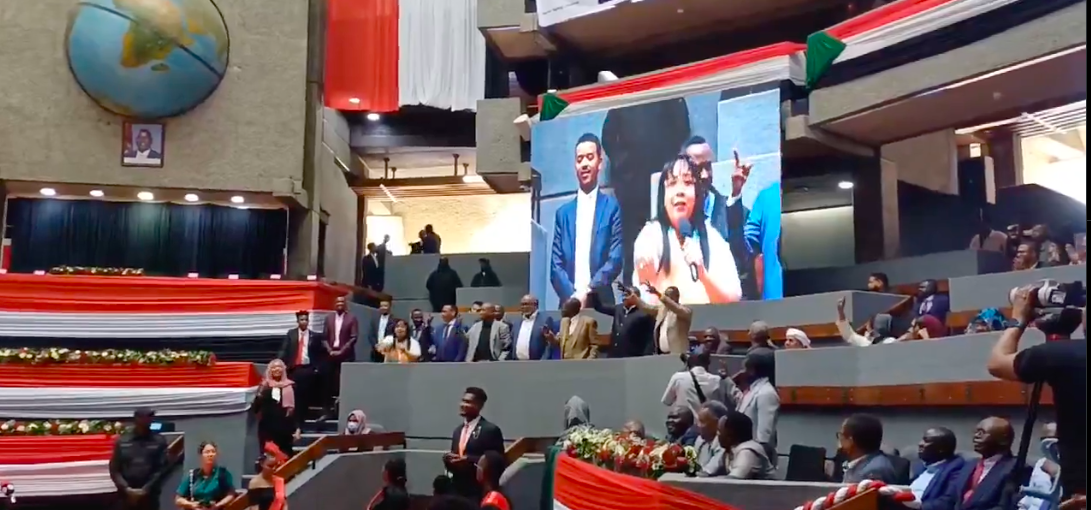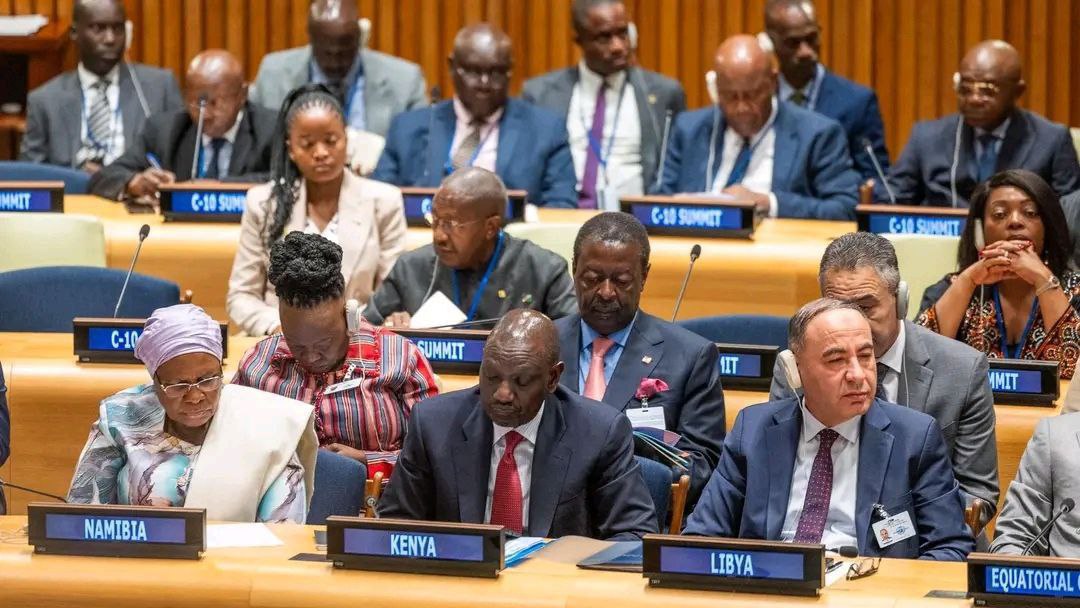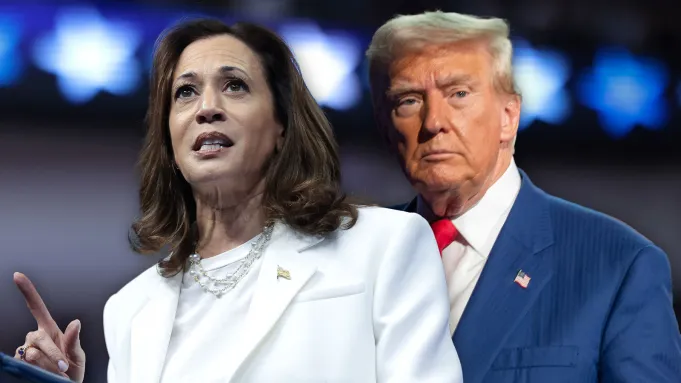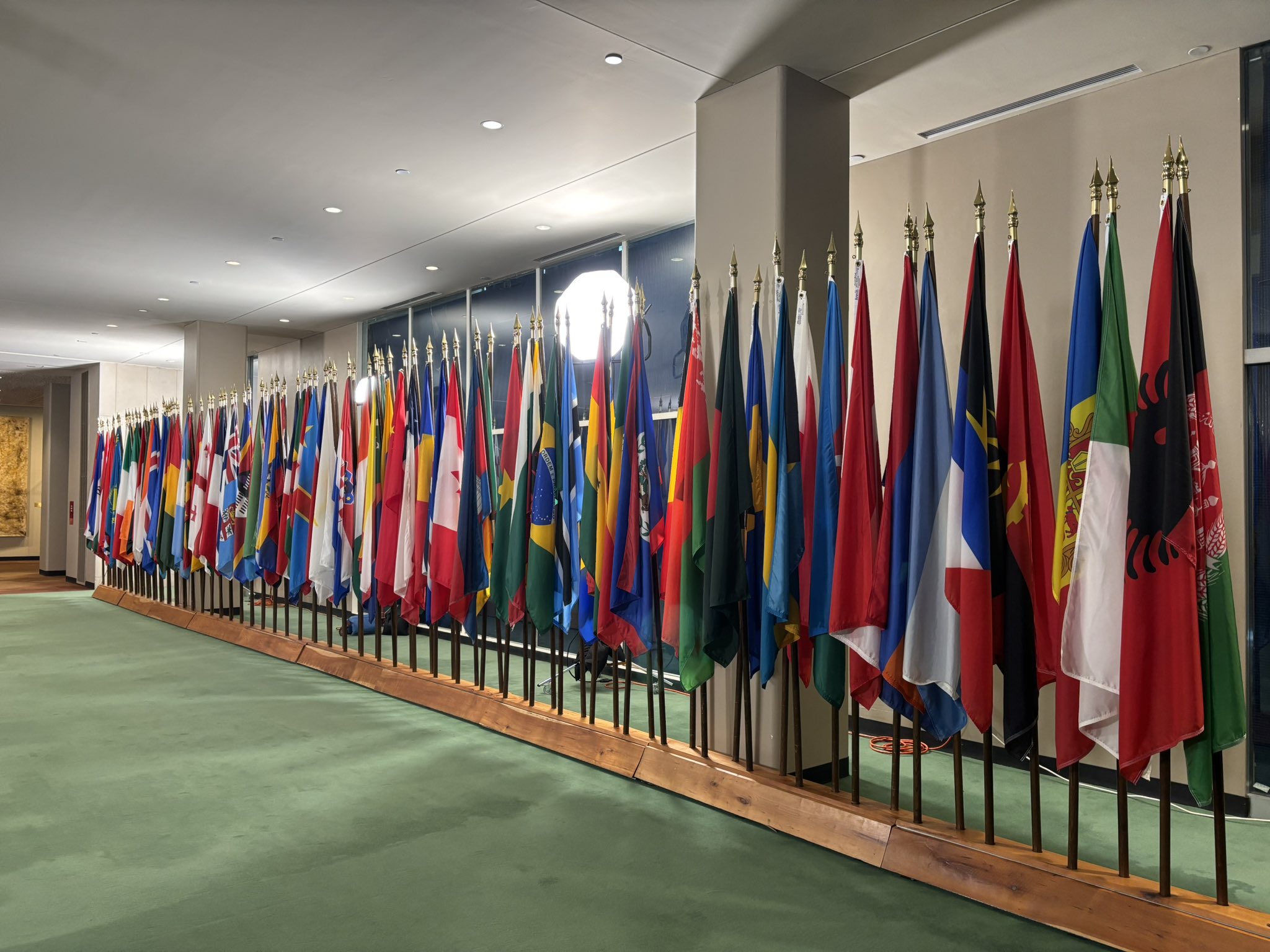President Ruto chaired a crisis meeting at State House yesterday following revelations that the RSF had held a political rally in Nairobi without his apparent knowledge. During the meeting, Ruto reportedly confronted Foreign Affairs Cabinet Secretary Musalia Mudavadi, Principal Secretary Korir Sing’oei, Inspector General of Police Douglas Kanja, and National Intelligence Service Director-General Noordin Haji, demanding answers as to how the RSF was allowed to stage such an event. The management of the Kenya International Convention Centre (KICC) was also summoned to explain how the rebels had secured the venue
President William Ruto’s government is under intense pressure from the international community over its perceived relationship with Sudan’s rebel group, the Rapid Support Forces (RSF). This comes as Ruto chaired a crisis meeting at State House yesterday following revelations that RSF held a political rally in Nairobi without his apparent knowledge.
Sources indicate that plans to unveil a breakaway Sudanese government in Nairobi were put on hold due to diplomatic pressure from the United States, the United Kingdom, and the European Union. The event, initially scheduled for today, was postponed after Kenya’s government faced backlash over hosting the Sudanese paramilitary group.
During the State House crisis meeting, President Ruto reportedly confronted Foreign Affairs Cabinet Secretary Musalia Mudavadi, Principal Secretary Korir Sing’oei, Inspector General of Police Douglas Kanja, and National Intelligence Service Director-General Noordin Haji, demanding answers on how RSF was allowed to stage such an event. The Kenya International Convention Centre (KICC) management was also summoned to explain how the rebels secured the venue.
The National Assembly’s Defence and Foreign Relations Committee, chaired by Belgut MP Nelson Koech, has now summoned Foreign Affairs officials to account for RSF’s presence in Kenya. Meanwhile, RSF struggled to hold a press conference, rescheduling it multiple times before cancelling it altogether. The conference was meant to outline plans for the formation of a breakaway government and unite various Sudanese rebel factions.
The Sudanese government has condemned Kenya’s actions, calling them “criminally irresponsible” and a violation of international law. Sudan’s Foreign Ministry accused Kenya of allowing a group responsible for genocide to operate within its borders, stating that the move contradicted previous commitments to remain neutral in the Sudanese conflict.
Despite the backlash, Prime Cabinet Secretary and Foreign Affairs CS Musalia Mudavadi defended Kenya’s decision to engage with RSF, arguing that Kenya has historically played a role in mediating conflicts in the region. He claimed that providing a platform for Sudanese groups aligns with Kenya’s broader peacekeeping objectives.
On Tuesday, RSF leaders held their first public rally at KICC, marking the start of a three-day event culminating in a major announcement on 21st February. RSF official Ezzedin Al Safi declared that they would unveil a new political charter and a constitutional document outlining Sudan’s future governance.
However, the event has sparked international outrage.
The UN Human Rights Office (OHCHR) has accused both RSF and Sudan’s military of committing war crimes, including summary executions, sexual violence, and attacks on civilians. The UN has called for an expanded arms embargo on Sudan, citing a worsening humanitarian crisis with over 25 million people facing severe hunger and displacement.
Diplomatic experts warn that if RSF succeeds in forming a government-in-exile, it could trigger a diplomatic fallout between Kenya and Sudan. Meanwhile, critics are questioning Kenya’s security apparatus—how could a foreign armed group organise a major event in Nairobi without the president’s knowledge? The incident raises serious concerns about Kenya’s sovereignty and diplomatic credibility on the global stage.





